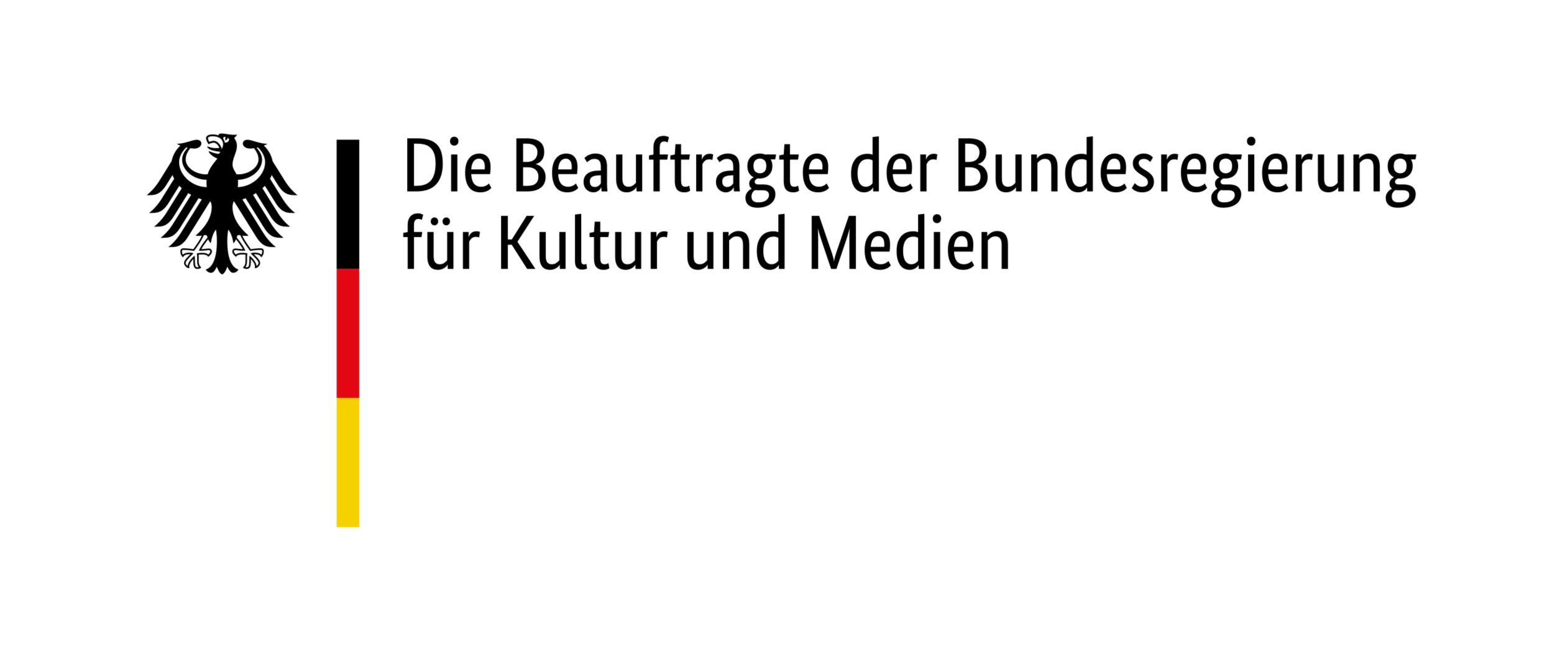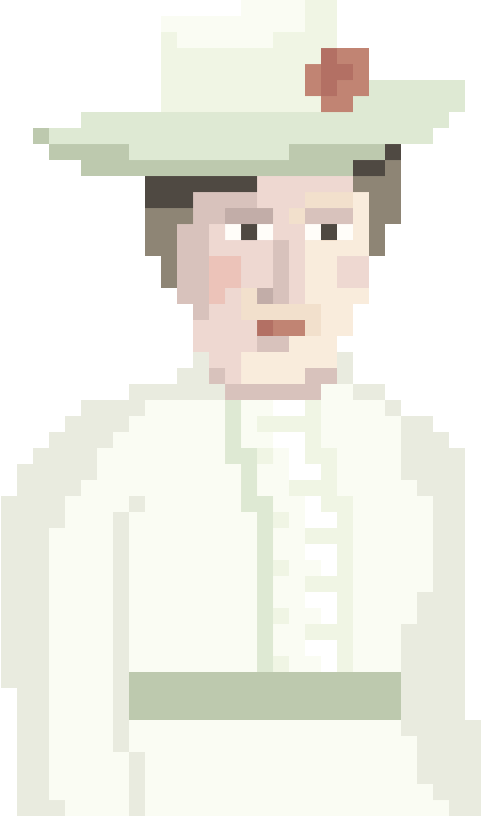
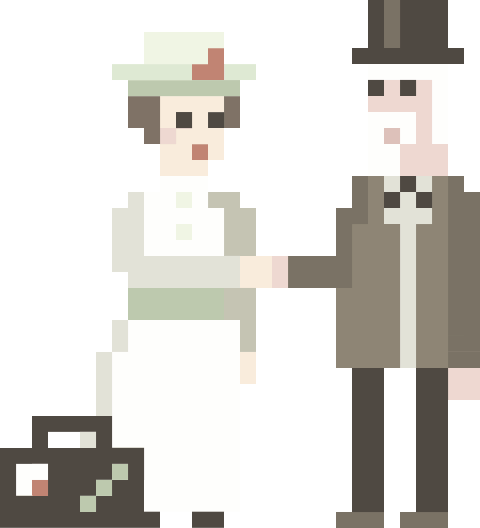
Du ziehst nach Berlin und stellst dich der Sozialdemokratischen Partei Deutschlands (SPD) vor.
Dem Parteisekretär sagst du:
» Ich möchte Ihnen bei der Arbeit helfen, zu diesem Zweck habe ich die Staatsbürgerschaft erworben und bin gekommen, um mich aktiv zu beteiligen. «
Die SPD nimmt dein Angebot gerne an, und du kannst nun für die Partei arbeiten, obwohl du als Frau kein Parteimitglied werden kannst.
You move to Berlin and introduce yourself to the Social Democratic Party of Germany (SPD).
You tell the party secretary:
» I want to help in your work, for this purpose I’ve acquired the citizenship and have come to play an active part. «
The SPD takes you up on your offer, and you can now work for the party, although, as a woman, you can’t become a party member.
Du hältst politische Reden und überzeugst die Arbeiter*innen von deinen Ideen.
Weil du polnisch sprichst, kannst du die Menschen in Oberschlesien (Regierungsbezirk Oppeln) in ihrer Muttersprache vom Sozialismus wirksam überzeugen. Im Juni 1898 bekommt die SPD die meisten Stimmen bei der Reichstagswahl.
Du siehst die Ergebnisse deiner Arbeit in Oberschlesien. Hier vermehrt sich der Stimmenanteil der SPD von 5,2% bei der Reichstagswahl 1893 auf 13,8% im Jahr 1898. Die Steigerung von 8,6 % ist viel höher als der landesweite Durchschnitt von 3,9%. 1893 gewann die SPD 23,3% der Stimmen und 1898 insgesamt 27,2%. Viele sagen, diese rasche Zunahme in Oberschlesien sei hauptsächlich dein Verdienst.
Du bist auch an den Wahlerfolgen der SPD in den kommenden Jahren beteiligt.
You hold political speeches and convince the workers of your ideas.
Because you speak Polish, you can tell people in Upper Silesia (Government District of Oppeln) about socialism in their own language. In June 1898, the SPD wins the highest number of votes in the Reichstag election.
You see the fruit of your work in Upper Silesia. The SPD’s share of the vote increases there from 5.2% in the 1893 Reichstag election to 13.8% in 1898. The increase of 8.6 % is much higher than the national average of 3.9%. In 1893 the SPD wins 23.3% of the vote and in 1898 27.2%. Many say that the SPD’s dramatic electoral improvement in Upper Silesia is largely due to you.
You also contribute to the electoral successes of the SPD in the years that follow.
1908 wird das Reichsvereinsgesetz verabschiedet und du kannst als Frau endlich Mitglied der SPD werden. Als Frau ist es dir aber immer noch nicht erlaubt zu wählen.
Dein politisches Engagement für die sozialdemokratische Sache erregt Angst in bürgerlichen Kreisen. Eine konservative Zeitung fordert, dass du als „galizische Jüdin“ ausgewiesen werden solltest. Wegen deiner preußischen Staatsangehörigkeit bist du davor aber geschützt.
In 1908, the Imperial Law of Association is passed in Germany, and you can finally become a member of the SPD. As a woman, however, you are still not allowed to vote.
Your political engagement for the social democratic cause alarms the middle classes. A conservative newspaper attacks you as a “Galician Jewess” and demands that you be deported. But your Prussian citizenship protects you.
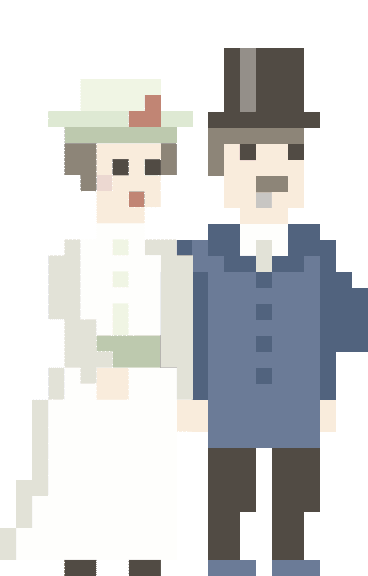
Zwei Jahre nach deiner Heirat mit Gustav Lübeck reichst du die Scheidung ein.
Die schweizerischen Behörden möchten eine Ehe zwischen zwei Deutschen zunächst nicht auflösen. 1903 bist du endlich geschieden, bleibst aber preußische Staatsangehörige.
Two years after your marriage to Gustav Lübeck, you file for divorce.
The Swiss authorities initially don’t want to dissolve a marriage between two Germans. You finally get your divorce in 1903 but remain a Prussian citizen.
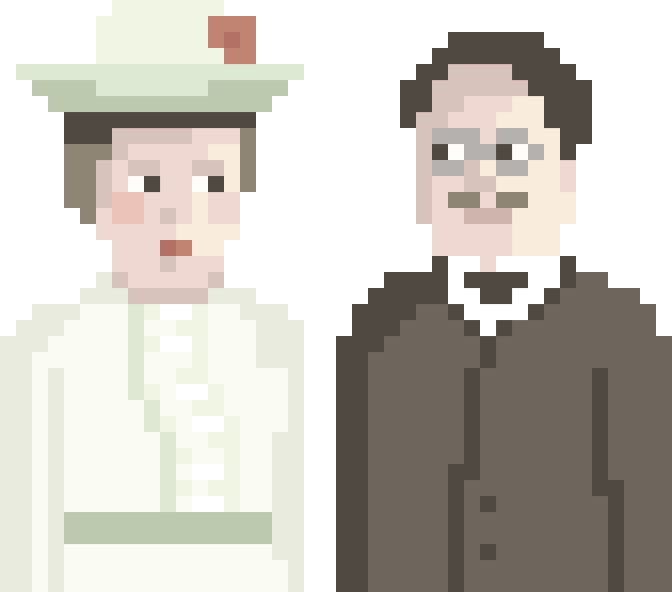
Mit dem Ausbruch des Ersten Weltkriegs setzt du dich für sozialistische Brüderlichkeit und Revolution ein. Du kämpfst gegen Kapitalismus, Militarismus und Imperialismus.
In dem Chaos nach der deutschen Kriegsniederlage befürwortest du die Gründung einer sozialistischen Republik in Deutschland. Du scheust nicht vor Gewalt gegen die provisorische Regierung zurück, um diese Vision umzusetzen.
Zusammen mit Karl Liebknecht gründest du am 1. Januar 1919 die Kommunistische Partei Deutschlands (KPD) und setzt dich für die Fortführung der Revolution ein.
At the outbreak of the First World War, you call for socialist fraternity and revolution. You fight against capitalism, militarism, and imperialism.
In the chaos of German defeat, you call for the establishment of a socialist republic in Germany. You don’t shy away from using force against the provisional government to achieve this vision.
Together with Karl Liebknecht you found the Communist Party of Germany (KPD) on 1 January 1919 and press for the revolution to continue.
Allerdings will die Regierung den Umsturzversuch deiner revolutionären Gruppe um jeden Preis verhindern. Daher ruft sie unter anderem Freikorpssoldaten zu Hilfe.
Einige Soldaten sind rechtsextrem und ermorden dich und Karl Liebknecht am 15. Januar 1919. Deine Leiche werfen sie in den Berliner Landwehrkanal.
Vier Tage später findet die erste Wahl in Deutschland statt, bei der Frauen wählen dürfen. Du hättest zum ersten Mal wählen können.
However, the government wants to prevent any uprising by your revolutionary group at all costs. Among those it calls on to help are Free Corps soldiers.
Some of whom are right-wing extremists. On 15 January 1919 they murder you and Karl Liebknecht, and throw your body into the Landwehr Canal.
Four days later, the first election in which women are allowed to vote takes place in Germany. You would have been able to vote for the first time.

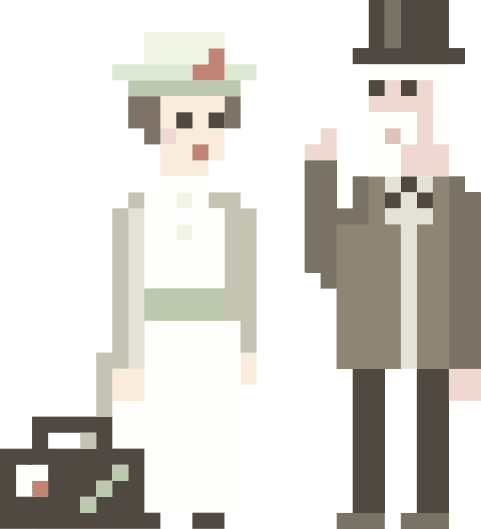
Du gehst nach Berlin und versuchst, in der sozialdemokratischen Szene bekannt zu werden.
Allerdings halten dich die Parteichefs der Sozialdemokratischen Partei (SPD) ohne die preußische Staatsangehörigkeit für nicht besonders nützlich.
You go to Berlin and try to make a name for yourself in the social democratic scene.
However, the leaders of the Social Democratic Party (SPD) don’t consider you much use without Prussian citizenship.
Du versuchst, dich einbürgern zu lassen, um die Staatsangehörigkeit zu erwerben und damit einen festen Aufenthaltsstatus zu erlangen. Doch die preußischen Behörden haben das Einbürgerungsverfahren für bestimmte Personengruppen sehr schwierig gemacht.
Zu diesen Gruppen gehören Pol*innen, Jüd*innen und Sozialist*innen. Der preußische Staat sieht diese Menschen als Feinde an.
Alle drei Kategorien treffen auf dich zu. Als jüdische Sozialistin aus dem polnischen Teil Russlands giltst du als „Reichsfeindin“.
Dein Einbürgerungsantrag wird daher sofort abgelehnt.
You want to be naturalised to acquire citizenship and thus permanent residency. But the Prussian authorities have made the naturalisation process very difficult for certain groups of people.
They include Poles, Jews, and socialists. The Prussian state sees these people as enemies.
You fit all three categories. As a Jewish socialist from the Polish part of Russia you are considered an “enemy of the German Empire.”
Your application for naturalisation is consequently rejected.
Trotzdem mischst du dich in die Politik ein.
Du hältst Reden und nimmst an Demonstrationen teil. Als Ausländerin ist dies aber gefährlich und ungesetzlich.
Der preußische Staat will „Reichsfeinde“ ausweisen.
Es gab schon in den 1880er-Jahren zahlreiche Ausweisungen von Jüd*innen, Pol*innen und Sozialist*innen.
Nevertheless, you get involved in politics.
You hold speeches and take part in demonstrations. But for a non-citizen this is dangerous and unlawful.
The Prussian state wants to deport “enemies of the German Empire.”
Already in the 1880s, many Jews, Poles, and socialists were deported.
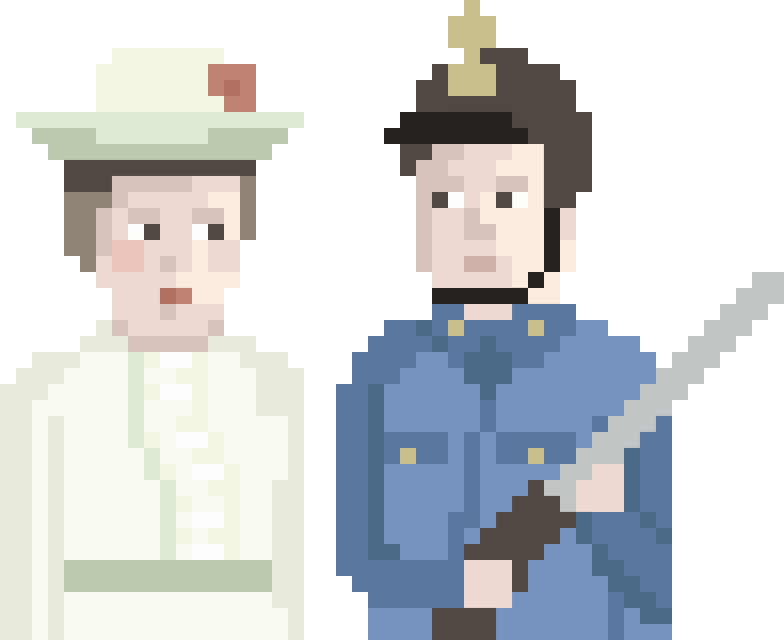
Nach einer politischen Rede wirst du von der preußischen Polizei festgenommen.
Du wirst nach Warschau abgeschoben.
Warschau steht immer noch unter russischer Vorherrschaft, und im Zarenreich werden Jüd*innen und Sozialist*innen härter bestraft als in Deutschland.
After holding a political speech you are arrested by the Prussian police.
You are then deported to Warsaw.
Warsaw is still under Russian rule, and in the Tsarist Empire Jews and socialists are more severely punished than in Germany.
Die russische Polizei hat von deinen sozialistischen Aktivitäten erfahren und nimmt dich nach deiner Ankunft fest.
Du wirst in eine Strafkolonie nach Sibirien geschickt.
Dort musst du unter schrecklichen Bedingungen harte körperliche Arbeit leisten.
The Russian police have learned of your socialist activities and arrest you on arrival.
You’re sent to a penal colony in Siberia.
You have to perform heavy labour under terrible conditions.

Du gehst nach Berlin und versuchst, in der sozialdemokratischen Szene aktiv zu werden.
Allerdings halten dich die Parteichefs der Sozialdemokratischen Partei (SPD) ohne die deutsche Staatsangehörigkeit für nicht besonders nützlich.
Du hältst trotzdem politische Reden und nimmst an Demonstrationen teil.
You go to Berlin and try to play an active part in the social democratic scene.
However, the leaders of the Social Democratic Party (SPD) don’t consider you much use without German citizenship.
You nevertheless hold political speeches and take part in demonstrations.
Nach einer Rede kommen zwei Polizisten auf dich zu. Sie warnen dich:
» Du bist keine Deutsche, für dich ist es gefährlich, politisch aktiv zu sein, besonders als Sozialistin. Wenn du weitermachst, können wir dich aus Deutschland ausweisen. »
Du nimmst diese Warnung sehr ernst, auch weil du nicht nach Russland abgeschoben werden willst. Dort ist die Verfolgung von Sozialist*innen viel schlimmer als in Deutschland.
Die einzige Wahl, die dir bleibt, ist, dich verdeckt für die sozialistische Sache einzusetzen. Die Wirkung deiner Arbeit ist sehr gering, einen Umsturz der gesellschaftlichen Verhältnisse kannst du so nicht herbeiführen.
After a speech you are approached by two policemen. They warn you:
» You’re not a German, it’s dangerous for you to get involved in politics, especially as a socialist. If you persist, we can deport you from Germany. »
You take the warning very seriously, not least because you don’t want to be deported to Russia. The persecution of socialists there is much worse than in Germany.
The only choice you have left is to work covertly for the socialist cause. Your activities have very little impact. This is no way to overthrow the social order.
Du kannst immerhin für Frauenrechte eintreten.
Viele politisch interessierte Frauen treffen sich in Salons, Kaffeehäusern und bürgerlichen Wohnzimmern, um über Frauenrechte und Gleichberechtigung zu diskutieren.
Du hältst die Befreiung der Frau nur durch den Sozialismus für möglich. Darüber hinaus willst du keine Bewegung unterstützen, die sich hauptsächlich für bürgerliche Frauen einsetzt und Arbeiterinnen nicht beisteht.
At least you can champion women’s rights.
Many women with an interest in politics meet in salons, coffee houses, and middle-class parlours to discuss women’s rights and equality.
You attend but become dissatisfied. You believe that female emancipation can only be achieved through socialism. Moreover, you don’t want to support a movement that acts mainly in the interests of middle-class women and fails to support workers.
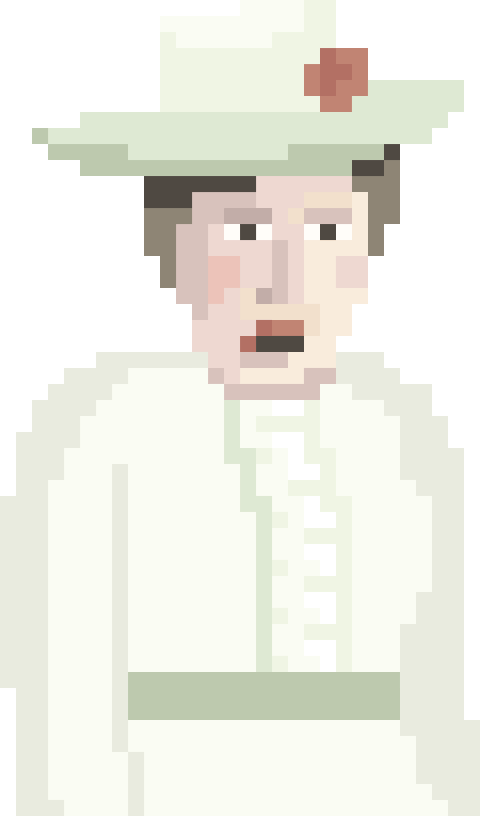
Ohne deutsche Staatsangehörigkeit kannst du den männlichen Machtbereich der Politik nicht erreichen.
Du bist in zweierlei Hinsicht benachteiligt: als Frau und als Ausländerin.
Ohne aktive Einbindung in die Politik des Landes sind deine schriftlichen und rhetorischen Talente vergeudet.
Du bist deshalb sehr frustriert.
Without German citizenship, you can never breach the male-dominated sphere of politics.
You face two disadvantages: you’re both a woman and a foreigner.
Without active integration into the politics of the country, your talents in the written and spoken word are wasted.
You therefore become extremely frustrated.
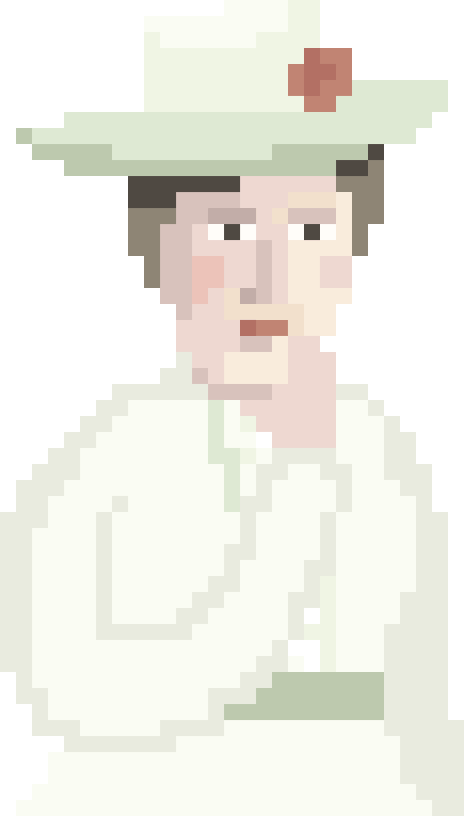
Bei der Reichstagswahl von 1898 verbessert die Sozialdemokratische Partei Deutschlands (SPD) zwar ihren gesamten Stimmenanteil im Vergleich zur vergangenen Reichstagswahl im Jahr 1893. 1893 gewann sie 23,3% der Stimmen und 1898 insgesamt 27,2%.
Aber in Oberschlesien (Regierungsbezirk Oppeln) verliert sie sogar an Stimmen.
Genau dort hättest du eine einflussreiche Rolle spielen können. In Oberschlesien leben viele polnisch sprechende Arbeiter*innen, die die preußische Staatsangehörigkeit besitzen. Sie hättest du auf Polnisch für die sozialistische Sache gewinnen können.
The Social Democratic Party of Germany (SDP) takes a bigger overall share of the vote in the 1898 Reichstag election than in the preceding election of 1893. In that year it won 23.3% of the vote and in 1898 27.2%.
But in Upper Silesia (Government District Oppeln) the SPD somehow manages to lose votes.
That was precisely where you could have played an influential role. In Upper Silesia there are many Polish-speaking workers with Prussian citizenship. You would have been able to win them for the socialist cause through the Polish language.

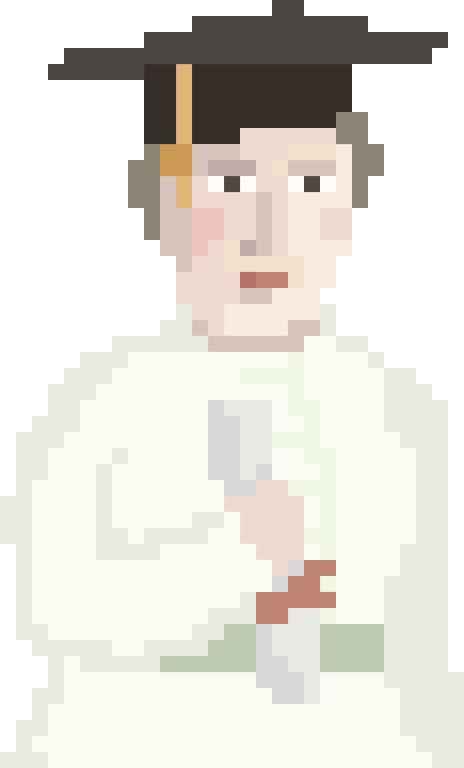
Du hast promoviert und bist Fräulein Dr. Luxemburg.
Du veröffentlichst deine Doktorarbeit, ein wichtiges Werk über die industrielle Entwicklung Polens.
Du setzt dich weiter intellektuell und wissenschaftlich mit dem Thema Sozialismus auseinander.
You’ve got your doctorate and can call yourself Dr. Luxemburg.
You publish your thesis, an important work on industrial development in Poland.
You continue to take an intellectual and scholarly interest in socialism.
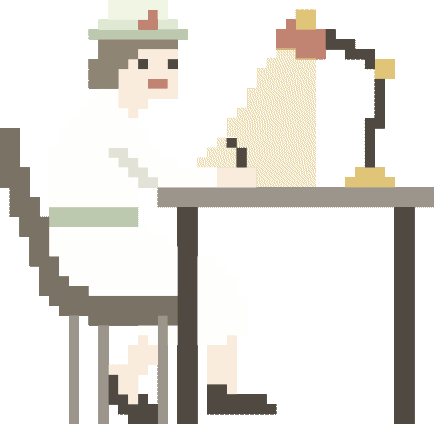
Du arbeitest an der Universität Zürich als Dozentin. Allerdings bereust du, dass du nicht an der wachsenden sozialistischen Bewegung in Deutschland aktiv beteiligt bist.
Du verfasst weiter Texte über Massenstreiks, Revolutionen und die Anhäufung des Kapitals. Aber es fehlen dir persönliche Kontakte zu bedeutenden Vertreter*innen der Arbeiterbewegung.
Der Grund dafür ist, dass du in Zürich wohnst. Zürich ist keine große Industriestadt, 1895 leben hier rund 100.000 Einwohner.
You work as a lecturer at Zurich University. However, you regret that you are not playing an active role in the growing socialist movement in Germany.
You continue to produce texts on mass strikes, revolution, and the accumulation of capital. What you miss, however, is personal contact with important representatives of the labour movement.
The reason is that you live in Zurich. Zurich is not a large industrial city; in 1895 it had a population of only 100,000.

Dein Werk würde sicherlich profitieren, wenn du in einer industriellen Weltstadt wohnen würdest – vielleicht im „Roten Berlin“, das über 1,6 Millionen Einwohner hat.
Der fehlende Kontakt zur Arbeiterbewegung schadet deiner wissenschaftlichen Karriere. Aktive sozialistische Intellektuelle und Politiker*innen kritisieren dich.
Wie Karl Marx selbst sagte:
» Die Philosophen haben die Welt nur verschieden interpretiert; es kommt darauf an, sie zu verändern. «
Your work would certainly benefit if you lived in one of the industrial metropolises – perhaps “Red Berlin” – which has over 1.6 million inhabitants.
The lack of contact with the labour movement is detrimental to your scholarly career. Active socialist intellectuals and politicians criticize you.
As Karl Marx said:
» Philosophers have only interpreted the world, in various ways. The point, however, is to change it. «
Auch in der wissenschaftlichen Welt bist du nicht so erfolgreich, wie du erhofft hast. Zwar kannst du an der Universität Zürich unterrichten, dir bleibt aber eine volle Professur verwehrt, weil du eine Frau bist.
Obwohl Frauen an schweizerischen Universitäten herausragende intellektuelle Arbeit leisten, erhalten sie nur ein geringes Gehalt.
In academia, too, you are not as successful as you had hoped. Although you can teach at the University of Zurich, you are denied a full professorship because you are a woman.
Although women do outstanding intellectual work at Swiss universities, they are poorly remunerated.
Weil du in der Schweiz dauerhaft bleiben willst, versuchst du, die Staatsbürgerschaft zu erwerben. Die Voraussetzungen dafür sind eine zweijährige Wohnsitzpflicht und eine Bewilligung vom Bundesrat.
Doch das Verfahren wird vielen Ausländer*innen schwer gemacht, und die Gebühren für die Einbürgerung sind sehr hoch. Dies führt zu einer niedrigen Einbürgerungsrate in der Schweiz.
Um 1920 erfüllst du endlich die Voraussetzungen und hast das Geld gespart, um das Verfahren zu bezahlen. Für deine Einbürgerung musst du zwei Drittel deines Jahresgehalts ausgeben. Du erhältst die schweizerische Staatsbürgerschaft.
Allerdings haben Frauen in der Schweiz kein Wahlrecht.
Because you want to stay permanently in Switzerland, you attempt to acquire Swiss citizenship. A two-year residence requirement must be met, and the approval of the Federal Council obtained.
But the process is made difficult for many foreigners, and the fees for nationalisation are extremely high. The result is a low rate of naturalisation in Switzerland.
In around 1920 you finally meet the conditions and have saved enough money to pay for the procedure. Your naturalisation costs you two-thirds of your annual salary. You obtain Swiss citizenship.
However, women in Switzerland cannot vote.
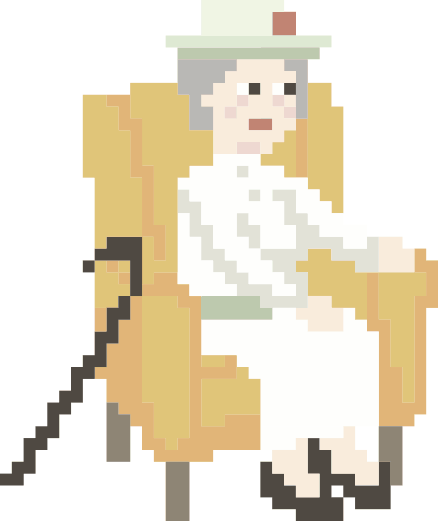
Du erreichst ein hohes Alter und stirbst kurz nach deinem 100. Geburtstag.
Erst sechs Monate später, im Oktober 1971, dürfen Frauen in der Schweiz zum ersten Mal auf Bundesebene wählen.
You reach a ripe old age and die shortly after your 100th birthday.
It is not until six months later, in October 1971, that women in Switzerland are able to vote for the first time at the national level.
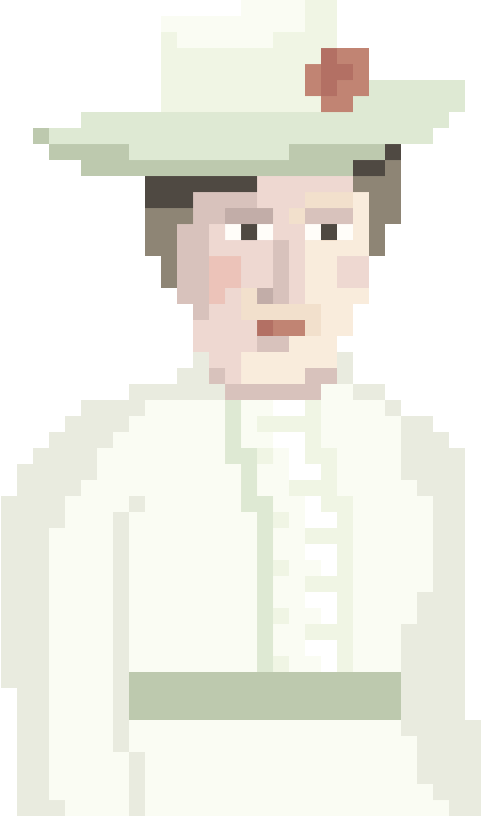
EINLEITUNG
Du bist eine kluge junge Frau namens Rosa.
Im späten 19. Jahrhundert lebst du als Polin aus jüdischer Familie in Warschau, was Teil des russischen Zarenreichs ist. Es gibt keinen polnischen Staat: Polnische Menschen leben unter russischer, preußischer oder österreichischer Herrschaft.
Du interessierst dich für sozialistische Ideen und die Philosophie von Karl Marx. Du hast deshalb Schwierigkeiten mit der Polizei und den russischen Besatzungssoldaten.
Du beginnst eine romantische Beziehung mit einem netten jungen Mann namens Leo Jogiches. Er kommt auch aus einer jüdischen Familie und spricht polnisch wie du. Er engagiert sich für den Sozialismus.
Du fühlst dich „in der ganzen Welt zu Hause“. Allerdings sind deine Bewegungsmöglichkeiten als Jüdin in Russland begrenzt: Jüdische Menschen dürfen nur in bestimmten Gebieten wohnen.
INTRODUCTION
You’re a clever young woman called Rosa.
It’s the late 19th century and you are a Pole from a Jewish family living in Warsaw in the Tsarist Empire of Russia. There is no Polish state: the Poles live under Russian, Prussian, or Austrian rule.
You are interested in socialist ideas and the philosophy of Karl Marx. Because of this, you have problems with the police and the occupying Russian troops.
You get romantically involved with a nice young man called Leo Jogiches. He is also from a Jewish family and speaks Polish as you do. He is working for the socialist movement.
You feel “at home in the whole world.” However, your mobility as a Jewish woman in Russia is limited: Jews are only allowed to live in certain defined areas.
Als Frau darfst du in Russland nicht an der Universität studieren. Die Schweiz ist eines der wenigen Länder der Welt, wo Frauen studieren können. Zudem hast du gehört, dass die Polizei dich wegen deiner sozialistischen Einstellung sucht. Deshalb ziehst du 1889 in die Schweiz.
Dort erlangst du 1897 den Doktortitel an der Universität Zürich. Du findest die Ideen des Sozialismus immer spannender und schreibst wissenschaftliche Texte darüber.
Du willst nach Deutschland, denn es ist zu dieser Zeit das Land mit der stärksten sozialdemokratischen Bewegung der Welt. Du willst die Bewegung aktiv unterstützen und voranbringen.
Aber Du brauchst die Staatsangehörigkeit des Deutschen Reiches, um in Deutschland ohne Furcht vor Ausweisung politisch tätig zu sein.
As a woman, you are not admitted to universities in Russia. Switzerland is one of the few countries in the world where women can study. Moreover, you have heard that the Russian police are looking for you because of your socialist leanings. So, in 1889 you move to Switzerland.
There you gain a doctorate at the University of Zurich. You find the ideas of socialism more and more exciting and write scholarly texts about it.
You want to go to Germany, because it has become the country with the strongest social democratic movement worldwide. You want to actively support and advance the movement.
But you need to be a citizen of the German Empire if you are to play an active political role in Germany without fearing deportation.
In Zürich wohnst du als Untermieterin bei der Familie Lübeck. Der Vater, Carl, ist preußischer Sozialdemokrat. Die Mutter, Olympia, ist eine revolutionär gesinnte Frau polnischer Herkunft.
Du hilfst Carl bei der Veröffentlichung sozialdemokratischer Aufsätze. Olympia ist wie eine zweite Mutter für dich.
Carl und Olympia Lübeck wissen von deinem Traum, dich in Deutschland politisch zu engagieren. Sie schlagen vor, dass du ihren Sohn Gustav heiratest.
Weil die Familie Lübeck ihre preußische Staatsangehörigkeit auch in der Schweiz behalten hat, könntest du durch eine Heirat mit ihrem Sohn die preußische und damit die deutsche Staatsbürgerschaft erwerben. Eigentlich ein guter Plan, aber du liebst Gustav nicht. Es wäre nur eine Zweckehe...
In Zurich you rent accommodation from the Lübeck family. The father, Carl, is a Prussian Social Democrat. The mother, Olympia, is a revolutionary-minded woman of Polish origin.
You help Carl with the publication of social democratic essays. Olympia becomes like a second mother to you.
Carl and Olympia know about your dream of playing an active political role in Germany. They suggest that you marry their son Gustav.
Because the Lübeck family have retained their Prussian citizenship in Switzerland, marrying Gustav will bring you Prussian and hence German citizenship. A good plan, really, but you don’t love Gustav.
It would be no more than a marriage of convenience...
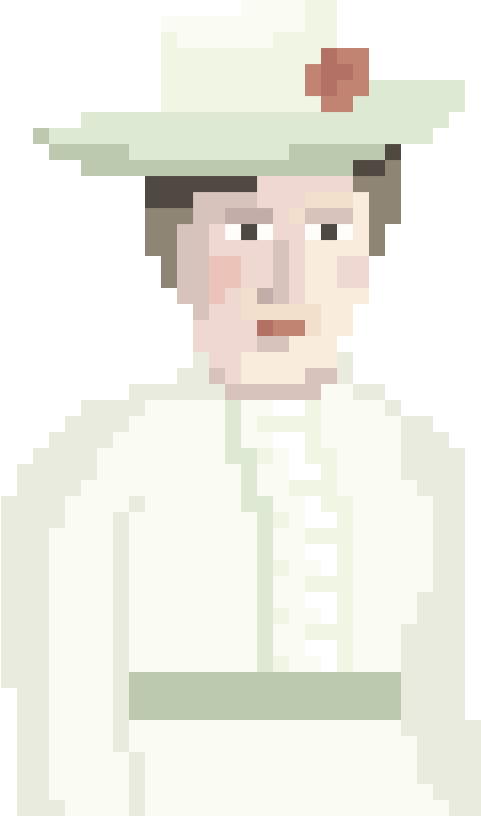
WIE ENTSCHEIDEST DU DICH?
Gustav Lübeck ist Schriftsetzer. Er ist zwar nett, aber wenig an intellektuellen Dingen interessiert. Gustav möchte keine Zweckehe. Er protestiert dagegen, doch seine Mutter Olympia besteht darauf. Gustav gibt schließlich nach.
Was würdest du an Rosas Stelle tun?
YOUR DECISION?
Gustav Lübeck is a typesetter. Although he’s nice, he isn’t interested in intellectual matters. He isn’t in favour of a marriage of convenience. He protests, but his mother Olympia insists. He finally gives in.
What would you do in Rosa’s place?

IMPRESSUM
Wigwam e.G. in Zusammenarbeit mit dem Deutschen Historischen Museum zur Ausstellung - Staatsbürgerschaften: Frankreich, Polen, Deutschland seit 1789.
KONZEPTION UND ERSTELLUNG

IMPRINT
Wigwam e.G. in cooperation with the German Historical Museum for the exhibition - Citizenships: France, Poland, Germany since 1789.
CONCEPTION AND CREATION

DEUTSCHES HISTORISCHES MUSEUM
und Volontärin

GERMAN HISTORICAL MUSEUM

DEUTSCHES HISTORISCHES MUSEUM
Juni, 2022

GERMAN HISTORICAL MUSEUM
June, 2022

